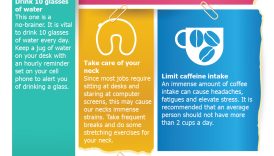Elevate Your Wellness Game with the Healthy Living Revolution

Importance of Healthy Living
In today’s fast-paced world, the significance of maintaining a healthy lifestyle cannot be overstated. Health is not just the absence of disease; it encompasses physical, mental, and emotional well-being. Adopting healthy living practices can lead to a multitude of benefits that enhance quality of life.
- Elevate Your Wellness Game with the Healthy Living Revolution
- Importance of Healthy Living
- Overview of the Healthy Living Revolution
- Building a Strong Foundation
- Nutrition Basics
- The Role of Exercise
- Mindful Eating Habits
- Understanding Portion Control
- Incorporating Whole Foods
- Creating a Balanced Lifestyle
- Managing Stress Levels
- Importance of Sleep Quality
- Hydration and Its Impact
- Benefits of Staying Hydrated
- Tips for Increasing Water Intake
- Enhanced Energy Levels: Individuals often report having more energy to engage actively in daily tasks or hobbies. For example, after switching to a balanced diet and regular exercise, Jane found that she could keep up with her kids during weekend outings without feeling drained.
- Improved Mental Health: Healthy living can significantly affect mental well-being. Regular exercise and a nutritious diet can reduce stress, anxiety, and depression. Mike, an office worker, noticed his mood improved after transitioning to healthier food choices and incorporating lunchtime walks into his routine.
- Longevity: Studies indicate that a commitment to a healthy lifestyle can lead to a longer life. By eating right and exercising, individuals can lower their risk of chronic diseases such as diabetes, heart disease, and certain cancers.
Overview of the Healthy Living Revolution
The Healthy Living Revolution represents a growing movement towards wellness, emphasizing the importance of conscious choices in everyday life. This revolution is not just a trend but a fundamental shift in how people view health and well-being. Several factors contribute to this evolution:
- Increased Awareness: There is a heightened awareness of the adverse effects of poor nutrition and sedentary behavior. Social media platforms are filled with information on healthy recipes, fitness tips, and motivational stories of transformation.
- Access to Information: With a wealth of resources available at their fingertips, people are more informed about health than ever before. Online cooking classes and fitness apps are providing accessible tools for anyone looking to make a change.
- Community Support: Many communities are fostering environments that promote health through local initiatives, such as farmers’ markets and fitness groups. These support systems can motivate individuals to embark on their health journeys together.
In summary, the importance of healthy living cannot be ignored, and the Healthy Living Revolution is empowering individuals to take control of their health in a way that fosters long-term success and fulfillment.
Building a Strong Foundation
Nutrition Basics
Having established the importance of healthy living, the next step is to build a strong foundation through proper nutrition. Nutrition is the backbone of health; what we consume directly impacts our physical and mental well-being. To start, understanding the basics of nutrition is essential:
- Macronutrients: These are the nutrients needed in larger amounts, including carbohydrates, proteins, and fats. Each plays a unique role:
- Carbohydrates are the body’s primary energy source. Opt for whole grains, fruits, and vegetables.
- Proteins are vital for muscle repair and growth. Incorporate lean meats, legumes, and nuts.
- Fats support cell function and hormone production. Select healthy fats from avocados, olive oil, and fish.
- Micronutrients: These are necessary in smaller quantities but are equally critical, encompassing vitamins and minerals. A diverse diet rich in fruits and vegetables can help meet these needs.
For instance, taking a cue from Sarah’s experience—by increasing her vegetable intake and reducing processed foods, she noticed improved digestion and energy levels.
The Role of Exercise
While nutrition lays the groundwork for a healthy body, exercise builds on that foundation and brings it all to life. Regular physical activity is crucial for maintaining fitness and overall well-being. Here’s why exercise is an essential component of a healthy lifestyle:
- Physical Health: Engaging in aerobic exercises, like jogging or cycling, enhances cardiovascular health. Strength training improves muscle mass and bone density.
- Mental Wellness: Exercise is known to release endorphins, the body’s natural mood lifters. Mike, who started a regular workout routine, found that he felt less stressed and more focused throughout the day.
- Social Connection: Group activities, such as yoga classes or running clubs, provide not only physical benefits but also foster community. Sarah joined a local hiking group, which motivated her to stay active while making new friends.
To effectively incorporate exercise into your routine, aim for:
- 150 minutes of moderate aerobic activity per week, like brisk walking or cycling.
- Strength training on two or more days a week, focusing on major muscle groups.
In summary, a balanced approach combining nutrition and exercise creates a robust foundation for a healthy lifestyle, paving the way for long-lasting health and vitality.
Mindful Eating Habits
Understanding Portion Control
As we continue building on the essentials of a healthy lifestyle, it becomes increasingly important to discuss mindful eating habits. A significant aspect of mindful eating is understanding portion control. This concept helps individuals make better food choices and manage calorie intake without feeling deprived. Portion sizes can substantially influence overall health. Here are some strategies to practice effective portion control:
- Use Smaller Plates: Research suggests that using smaller dinnerware can trick the brain into thinking you’re eating more than you are. When Jane switched to smaller plates, she found that her servings seemed ample, resulting in reduced food intake.
- Be Aware of Serving Sizes: Familiarize yourself with recommended serving sizes for various food groups. For example:
- A cup of cooked grains like brown rice is typically a serving.
- A portion of protein should be roughly the size of a deck of cards.
- Listen to Your Body: Pay attention to hunger and fullness cues. It’s essential to savor each bite and stop eating when you’re satisfied, not stuffed. Mike shares how taking a moment to breathe and reflect on how he feels during meals has transformed his approach to eating.
Incorporating Whole Foods
Another cornerstone of mindful eating is focusing on incorporating whole foods into your diet. Whole foods—those that are minimally processed—are better for overall health and well-being. Why are whole foods so significant? Here are some key points:
- Nutrient Density: Whole foods, such as fruits, vegetables, whole grains, and legumes, are rich in essential vitamins and minerals. They provide the body with the nutrients needed for optimal functioning without the empty calories found in processed foods.
- Improved Digestion: The fiber in whole foods aids digestion and promotes a healthy gut. Consider Brenda’s journey; after increasing her intake of whole fruits, vegetables, and grains, she experienced fewer digestive issues and more consistent energy levels.
- Satiation: Whole foods tend to be more filling, helping to curb overeating. The combination of fiber, protein, and healthy fats found in these foods keeps hunger at bay longer.
To get started with embracing whole foods, try these tips:
- Plan Your Meals: Incorporate a variety of whole foods in your weekly meal prep.
- Snack Smart: Swap out chips for nuts, fresh fruit, or hummus and veggies.
- Explore New Recipes: Experiment with different whole food options, such as quinoa salad or vegetable stir-fry.
By understanding portion control and committing to incorporating whole foods into daily meals, individuals can cultivate mindful eating habits that significantly enhance their overall health and wellbeing.
Creating a Balanced Lifestyle
Managing Stress Levels
As we delve deeper into creating a balanced lifestyle, it’s crucial to address the impact of stress on overall health. In our fast-paced world, stress seems inevitable, but managing it effectively can significantly enhance well-being. One effective strategy for stress management is mindfulness or meditation. Mike began incorporating short mindfulness exercises into his daily routine and noticed a profound difference in his ability to handle stress. Here are some techniques that can help:
- Deep Breathing Exercises: Taking just a few moments to focus on your breath can calm the mind and body. Try inhaling deeply for a count of four, holding for four, and exhaling for four.
- Regular Physical Activity: Exercise is a natural stress reliever. Whether it’s a brisk walk, yoga session, or hitting the gym, moving your body helps release endorphins that boost mood.
- Time Management: Organizing tasks can prevent the feeling of being overwhelmed. Brenda found that creating a daily checklist helped her prioritize tasks and reduced her anxiety.
Additionally, finding hobbies or activities that bring joy is essential. For Jane, painting became a therapeutic outlet, allowing her to unwind after a hectic day.
Importance of Sleep Quality
Equally interconnected with stress management is the importance of sleep quality. Sleep is the body’s restorative process and is vital for physical and mental health. However, many people underestimate its value. Poor sleep can lead to a variety of issues, from impaired cognitive function to increased susceptibility to illness. Here’s how to improve sleep quality:
- Establish a Routine: Going to bed and waking up at the same time each day can help regulate the body’s internal clock. Mike found that adhering to a sleep schedule made falling asleep easier and more refreshing.
- Create a Sleep-Friendly Environment: Make your bedroom a sanctuary—cool, dark, and quiet. Incorporating blackout curtains and removing electronic devices can create an optimal space for rest.
- Limit Stimulants: Reducing caffeine intake, especially in the afternoon, can significantly enhance sleep quality. Brenda made a conscious effort to swap her late-afternoon coffee for herbal tea, resulting in better sleep.
In essence, by managing stress levels and prioritizing sleep quality, individuals can create a balanced lifestyle that fosters resilience, happiness, and overall well-being. Each component plays a crucial role in maintaining not just physical health but emotional and mental stability, paving the way for a fulfilling life.
Hydration and Its Impact
Benefits of Staying Hydrated
Having established the foundation for creating a balanced lifestyle, it’s time to discuss an often overlooked but essential aspect of health: hydration. Staying hydrated is crucial for numerous bodily functions and impacts overall well-being in more ways than one. The benefits of proper hydration are numerous:
- Enhanced Physical Performance: When active, hydration plays a vital role in maintaining performance. Jane noticed that after increasing her water intake during her morning runs, she could push through her workouts with more energy and stamina.
- Improved Cognitive Function: Dehydration can lead to decreased concentration, memory, and overall brain function. Mike discovered that when he made it a habit to drink water throughout the day, he felt more alert during work meetings.
- Regulated Body Temperature: Water helps regulate body temperature, which is especially important during hot weather or intense physical activity. With sufficient hydration, the body can sweat and cool down efficiently.
- Support Digestive Health: Staying properly hydrated aids digestion and prevents constipation. Brenda shared that drinking adequate water helped her feel less bloated and more comfortable after meals.
Tips for Increasing Water Intake
Now that the benefits of hydration are clear, the next step is finding ways to increase water intake throughout the day. Here are some practical tips to make drinking water a habit:
- Carry a Reusable Water Bottle: Keeping a water bottle nearby serves as a constant reminder to drink. Choose one with measurements marked to track your progress.
- Infuse Your Water: If plain water feels boring, try infusing it with fruits, herbs, or cucumber. Adding flavors can make hydration enjoyable. Mike loves adding lemon and mint to his water for a refreshing twist.
- Set Reminders: Use smartphone apps or alarms to remind you to take a sip every hour. Jane found her hydration tracking app helpful for maintaining her daily goals.
- Drink Before Every Meal: Making it a habit to drink a glass of water before each meal can be an easy way to increase overall intake.
Incorporating these tips allows individuals to enhance their hydration habits easily, yielding numerous health benefits. As hydration becomes a more significant focus in daily routines, individuals will likely notice improvements in energy levels, cognitive function, and overall health.





